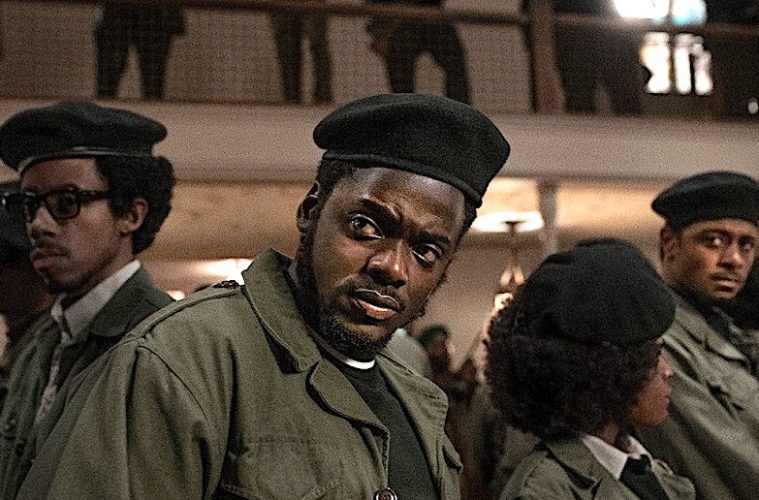 The descriptor “timely” is thrown around a lot these days, and it’s often a reach. But for filmmaker Shaka King, the director behind many episodes of High Maintenance and People on Earth as well as Hulu’s Shrill and Mulligans, “timely” seems the only word to describe his sophomore feature- the alive and electric Judas and the Black Messiah. It’s a film that arrives like a shot out of a cannon, speaking directly to what’s going on in the world today.
The descriptor “timely” is thrown around a lot these days, and it’s often a reach. But for filmmaker Shaka King, the director behind many episodes of High Maintenance and People on Earth as well as Hulu’s Shrill and Mulligans, “timely” seems the only word to describe his sophomore feature- the alive and electric Judas and the Black Messiah. It’s a film that arrives like a shot out of a cannon, speaking directly to what’s going on in the world today.
It’s the story of Fred Hampton (Daniel Kaluuya), the chairman of the Illinois Black Panthers, who in 1969 was shot and killed by a squad of FBI agents. The raid was carried out in part, due to information from Hampton’s own security chief, William O’Neal (Lakeith Stanfield), a criminal turned informant for the FBI’s Roy Mitchell (Jesse Plemons). In the movie’s first scenes, O’Neal storms into a bar with a fedora and fake badge, asking for the keys to a car out front. When he’s caught, the police ask him why not use a knife or a gun.
“A badge is scarier than a gun.” he answers.
Faced with a prison sentence or going undercover with the Black Panthers, O’Neal opts to work with Mitchell. This leads us to Hampton, who welcomes O’Neal into the Panthers with open arms, showing him around headquarters and taking him to protests. Hampton forms a “Rainbow Coalition” with the white Young Patriots and Latino Young Lords to rally against racial injustice and police brutality, offering free breakfasts, medical clinics and sermons to people of all colors, places and walks of life. His goal is to make sure everyone is treated equally, which ruffles the feathers of a system that will do anything to maintain power, even if it means tear gassing protesters and turning O’Neal against his newfound friend, Hampton.
Judas and the Black Messiah is a modern-day Judas and Jesus tale rooted in the sociopolitical issues of the day: police brutality, systemic racism, a palpable sense of anger that’s bound to boil over. Along with screenwriter Will Berson (Kenneth Lucas has story credit), King imagines a gritty version of Chicago, where no one is safe unless they travel in groups of five or more, adding to the paranoia. Jazz musicians Craig Harris and Mark Isham create a stripped-down, disjointed, jazz-inflected score that sounds like a kettle of water coming to a boil, serving the overall sense of unease.
Stanfield and Kaluuya memorably shared the screen in Jordan Peele’s Get Out, and the former is predictably fantastic, haunting and luminously troubled. But it’s Kaluuya who shines the brightest, showcasing his ability to disappear into a role as he did in Peele’s horrific hit, as well as Marvel’s film about a different kind of Panther. He nails the activist’s voice and cadence, especially in his public speeches, where he blends preaching, proselytizing and poetry to shake the pews and bring the audience to their feet in righteous anger.
“You can murder a revolutionary, but you can’t murder a revolution. You can murder a freedom fighter, but you can’t murder freedom,” he tells his followers, just three weeks before the police would shoot him in his sleep. The film’s ending–which involves a clip of the real O’Neal–is tragic, yes, but it also leaves us with a hopeful and powerful lesson: you can murder a Messiah, but you can’t murder a message. Hampton’s legacy lives on.
Advertising disclosure: We may receive compensation for some of the links in our stories. Thank you for supporting LA Weekly and our advertisers.

